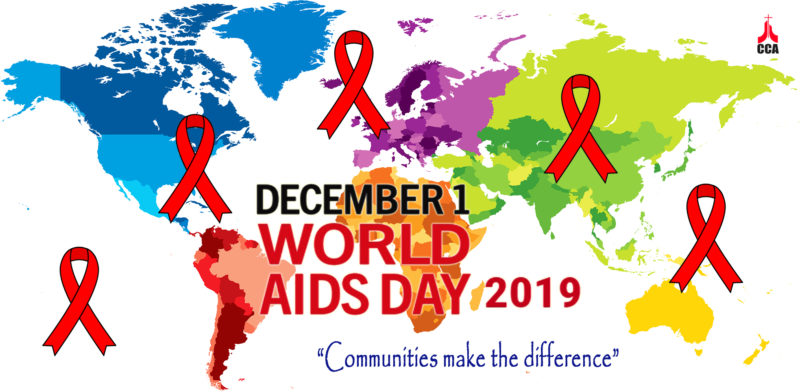World AIDS Day, 1 December 2019 Message from Christian Conference of Asia

HIV is a multidimensional issue with social, political and economic aspects impacting the strength and sustainability of people living with HIV (PLHIV) and key populations around the world. Despite the many advances we witness in combating the spread of HIV and AIDS in the world, we still stand amidst a turbulent yet transformational time. There were 37.9 million people living with HIV at the end of 2018 and 5.9 million were from Asia and the Pacific with 310,000 new infections detected. Globally, the number of affected persons are decreasing but in Asia, the numbers are increasing; particularly in the Philippines, Pakistan, and Malaysia.
The theme of World AIDS Day - 2019, “Communities make the difference", in this context is significant. Over the past decades, communities have been playing important roles in combating the menace of the epidemic in international, regional, national and local levels.
In Asia, faith communities have been active in various ways to address the spread of HIV and AIDS. During the past several years they stepped up responses to tackling stigma and discrimination, and they are becoming a distinctive force in the eradication of the epidemic. Churches in Asia also are contributing immensely to combat HIV and AIDS. The Christian Conference of Asia (CCA), which started its special advocacy initiatives to address the concerns of HIV and AIDS since 1992, has been at the forefront of mobilsing other faith communities for united action to combat HIV and AIDS. The efforts made by CCA over the years proved that churches can and will always be potent forces of effective advocacy that can contribute to transformation in the respective communities.
World AIDS Day is yet another occasion for churches in Asia to reaffirm their commitments and renewed role in combating the spread of the epidemic.
The CCA, on this World AIDS day, calls on all churches and ecumenical councils as well as other related organizations in Asia to recommit themselves to foster their efforts in communities to combat HIV and AIDS.
We urge all member churches and councils of CCA to reiterate our prophetic role and become prominent voices in advocating for greater awareness, ensuring the dignity and rights of PLHIVs; promoting access to adequate health care; strengthening collaborations with other faiths, civil society organizations and government especially influencing policies and legislation; and building communities of hope that the integrity and dignity of all God’s creation need to be valued and protected.

Mathews George Chunakara
General Secretary
Christian Conference of Asia










